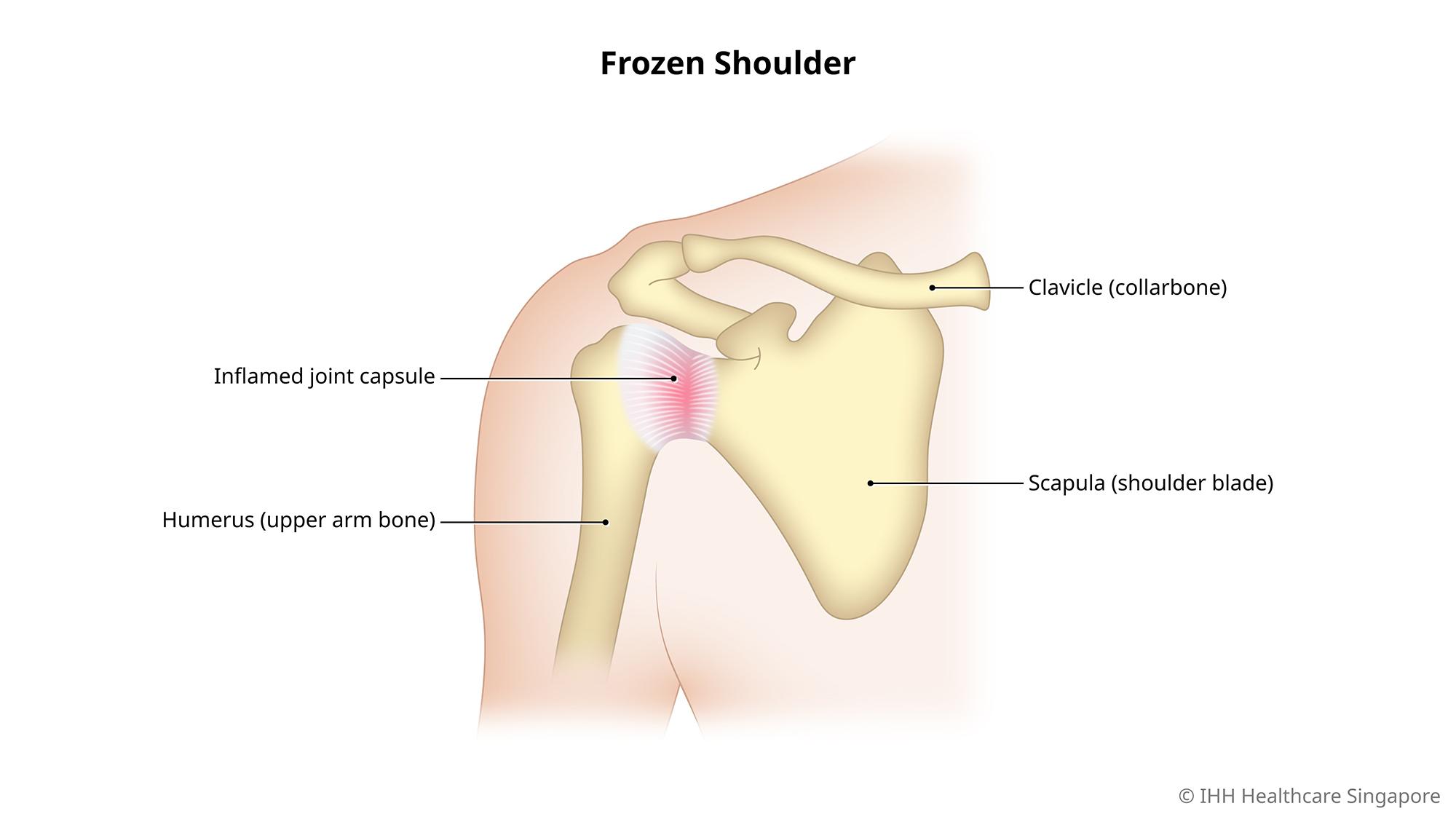
Frozen Shoulder (Adhesive Capsulitis)
What is frozen shoulder?
The shoulder is a ball-and-socket joint, surrounded by connective tissues known as the shoulder capsule. Frozen shoulder happens when the shoulder capsule becomes thick and tight, making it difficult for the shoulder to move normally.
Frozen shoulder, also known as adhesive capsulitis, results in loss of movement and pain or stiffness in one or both shoulder joints. This pain and loss of movement can affect daily activities.
What are the symptoms of frozen shoulder?
The most obvious symptom of frozen shoulder is dull pain in your shoulder and the shoulder muscles that wrap around the top of the arm. The pain may worsen at night, making it difficult for you to sleep. The tightness of the shoulder capsule may also limit your range of movement.
Frozen shoulder typically resolves over 2 – 3 years, in 3 distinct stages. Each stage can last several months.
Stage 1: Freezing
In the first stage, you may experience:
- Increasing pain with any shoulder movement
- Limited shoulder movement
This stage may last from 6 weeks – 9 months.
Stage 2: Frozen
In the second stage, you may experience less pain with any shoulder movement. However, you will still have stiffness and limited shoulder movement.
This stage may last from 4 – 6 months.
Stage 3: Thawing
In the last stage, you are likely to experience the least pain with any shoulder movement, and improved shoulder movement. However, pain may recur from time to time.
This stage may last from 6 months – 2 years.
What causes frozen shoulder?
The exact cause of frozen shoulder is not fully understood.
In some cases, inflammation causes parts of the shoulder capsule to become thickened and scarred. This reduces the volume of the shoulder joint, limiting the shoulder's ability to move and causing the shoulder to freeze.
What are the risk factors for frozen shoulder?
You may have a higher risk of having frozen shoulder if:
- You are:
- Older than 40 years
- Female, as women are more likely to develop frozen shoulder than men.
- You have a history of:
- Stroke
- Parkinson's disease
- Cardiovascular disease
- Endocrine disorders such as diabetes and thyroid problems
- Long periods of immobility or limited movement due to pain, or recovery from injury or surgery
- Trauma or injury such as a fracture.
What are the complications and related diseases of frozen shoulder?
Complications of frozen shoulder include:
- Residual stiffness or pain. Some individuals may continue experiencing stiffness or pain for up to 3 years after non-surgical treatment.
- Bone or tissue damage. Shoulder manipulation may sometimes result in fracture of the humerus (upper arm bone), or rupture of the bicep or subscapularis tendon.
- Recurrence of frozen shoulder. While rare, frozen shoulder can happen again. This is more common if the cause of the frozen shoulder is linked to a chronic condition such as diabetes.
How to prevent frozen shoulder?
If you were recently injured, you can prevent a frozen shoulder by maintaining the mobility of your shoulder joint while recovering.
This page has been reviewed by our medical content reviewers.
Need help?
For enquiries, please call
+65 6250 0000 (Orchard) or +65 6898 6898 (Novena)
For appointment bookings, please WhatsApp
+65 8111 7777 (Orchard) or +65 8111 5777 (Novena)
 Brain & Spine Care
Brain & Spine Care




